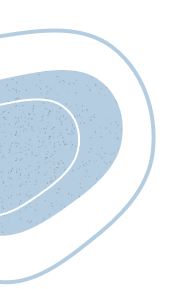Mortgages & Financing
First-Time Homebuyers
Are you new to Canada? Here’s how you can get a mortgage
Permanent residents can access first-time buyer incentives including GST rebates and land transfer tax reductions, while temporary residents may have limited options.
Julian TerenzioSr. Product Manager @ Pine
6 min read

Buying a home is a life milestone a lot of us look forward to, but for newcomers that just immigrated to Canada, it can be an overwhelming uphill battle to actually secure a mortgage. If you’re already angling to own a home, here's everything you need to know as a newcomer.
Here’s what you need to know as a newcomer to Canada
In Canada, there are generally a couple things you’ll need to access a conventional mortgage. These include:
Two years of employment history in Canada to indicate you have a stable income.
A Canadian credit history that shows lenders how you handle credit and debt and how responsible you are with your finances.
However, if you don’t have both of these, that doesn’t mean all is lost. Although it’s a little harder to access a mortgage, it’s not impossible. In fact, about 18% of mortgage consumers in most provinces are new to Canada. As long as you meet other eligibility requirements, there is still a chance you can qualify for a newcomer mortgage.
In some cases, a newcomer mortgage is a special mortgage program offered by some lenders for those new to Canada.
Are you eligible for a newcomer mortgage?
In order to qualify for a newcomer mortgage, just like any other mortgage, there are a couple requirements. You must:
Have immigrated to Canada within the last five years,
Be in Canada as a permanent resident, landed immigrant, or a non-permanent resident with a work permit,
Be employed full-time in Canada for at least three months,
Have a down payment of at least 5%, although this minimum requirement will be higher if the home you want is over $500,000, with some lenders requiring a minimum of 35% if you don’t have a Canadian credit history. If you are only able to provide less than 20% as a down payment, it will be mandatory to get mortgage insurance, which is a premium added onto your monthly mortgage payments.
Have a gross debt service ratio (GDS) of 39% or less and a total debt-service-ratio (TDS) of 44% or less. Mortgage lenders like Pine will calculate how much of your income covers your housing costs and any other debts, respectively. This also includes any foreign debt you may have incurred.
It’s important to note that for some lenders, guarantors cannot be included on this application and foreign diplomats who don’t pay taxes in Canada are ineligible for newcomer mortgages.
What documentation will you need to get a newcomer mortgage in Canada?
As with all mortgages, there will be some paperwork involved. To qualify for a newcomer mortgage you’ll need a:
Letter of reference from a recognized financial Institution, or
Six months of bank statements from your primary account
You’ll also need to provide:
Your international credit report, which should be high standing, OR
Two alternative sources of Canadian credit that show you’ve made your payments on time over the past year. These alternative sources can include:
A rental payment history confirmed from a letter from your landlord and 12 months of your bank statements. If providing a letter from your landlord, the letter must include your name, length of tenancy, and payment history.
One other alternative source, like hydro/utilities, telephone, cable, cell phone, and auto insurance, which you also need to have confirmed by letter from the service provider or 12 months of billing statements
How to improve your chances of getting a mortgage in Canada
Above all, it’s important to start building your credit once you’ve arrived in Canada. Generally, you need a credit score of 680 to qualify for a mortgage, and to build this up to show at least two-years’ worth of credit, you can:
Get a secured credit card to improve your chances of a mortgage approval. A credit card is the best way to build your credit history–as long as you pay it off on time.
Get a cell phone. Subscribing to a monthly phone plan is a great way to build your credit history, as paying your bills also helps contribute to your credit history.
Pay your bills on time. Paying your bills on time–and in full–will also reflect nicely on your credit history. On the flip side, if you don’t pay your bills on time or in full, you’ll negatively impact your credit score.
Set a realistic budget on the homes you can afford. You can use our home affordability calculator to gauge how large of a mortgage you can afford, which takes into consideration all the hidden costs of buying a home.
2025: new GST rebate for first-time buyers
In May 2025, Prime Minister Mark Carney's Liberal government announced the elimination of the Goods and Services Tax (GST) for first-time homebuyers on newly built homes valued up to $1 million. This new incentive will allow first-time buyers of new homes to pay zero GST on a new home, and there will also be reduced GST on homes priced between $1 million and $1.5 million. The release from the Feds explains that, "under the linear phase-out, a home valued at $1.25 million (i.e., the mid-point between $1 million and $1.5 million) would be eligible for a rebate of up to $25,000 (50% of the maximum rebate of $50,000)"
The FTHB GST rebate would apply to first-time homebuyers who are:
At least 18 years of age,
A Canadian citizen or permanent resident, and
Have not lived in a home that they or their spouse or common-law partner owned in the calendar year or in the four preceding calendar years, both inside and outside of Canada.
In terms of the types of housing included in the rebate, buyers who purchase a new home from a builder, build or hire a builder to build a home on land they own or lease, or purchase shares of a co-operative housing corporation are all eligible for the tax rebate.
Can you qualify first-time home buyer incentives as a newcomer?
If you’re a permanent resident of Canada, the answer is yes. As a permanent resident you can qualify for first-time home buyer incentives, like the First-Time Home Buyers' (FTBH) GST rebate and land transfer tax rebates, but if you’re a non-permanent resident (e.g., a temporary worker or an international student), some provinces might not offer this incentive.
The home-buying journey can feel like an uphill battle, especially in a new place, so if you’re ready to really make Canada your home but you have more questions about newcomer mortgage programs, feel free to start with Pine’s online application and one of our expert advisors will be in touch to help along the way.










